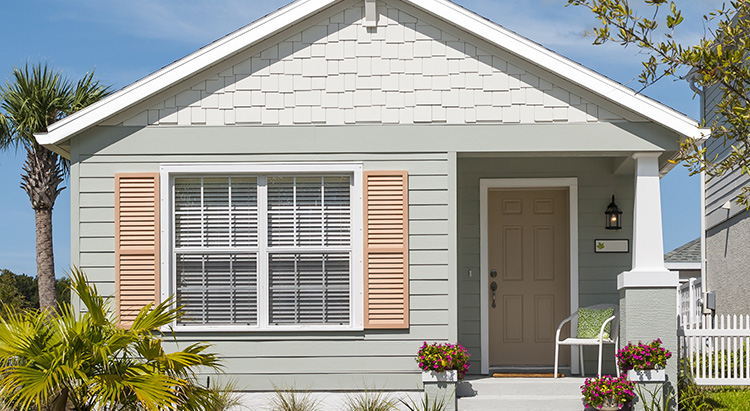If you’re planning to sell your home, one of the first questions that likely comes to mind is, “How long will it take to sell?” While there’s no single answer to this question, several factors come into play that can either speed up or slow down the sale process. From current market conditions to the time of year and even how well your home is prepared, understanding these factors can give you a clearer picture of your potential timeline. Here’s a breakdown of the key elements that impact how quickly your house might sell and some tips to help streamline the process.
1. Market Conditions
The state of the real estate market plays a significant role in determining the timeline for your home sale.
Seller’s Market vs. Buyer’s Market
- Seller’s Market: If there’s a high demand for homes but a limited supply, sellers generally have the upper hand. Homes in a seller’s market tend to sell more quickly because buyers are competing, often with multiple offers.
- Buyer’s Market: In contrast, a buyer’s market has more homes available than there are buyers. This can lead to longer listing times as buyers have more options, and sellers may need to wait longer for an offer.
Current Market Conditions
Understanding your local market trends is crucial. A real estate agent can provide you with up-to-date information on recent comparable home sales in your area and typical time-on-market data, helping you gauge how long homes similar to yours are taking to sell.
2. Pricing Strategy
Setting the right price is one of the most important factors in determining how quickly your home will sell. Overpricing can discourage buyers, leading to longer listing times, while a competitively priced home can attract more interest and potentially result in a quicker sale.
Pricing Tips:
- Avoid Overpricing: An inflated price can drive buyers away or encourage lowball offers. If your home is overpriced, it may sit on the market longer, leading potential buyers to question its appeal.
- Comparative Market Analysis (CMA): A real estate agent can provide a CMA, which shows the prices of similar homes that have recently sold in your area. This data-driven approach can help you set a competitive and attractive price.
3. Location
The desirability of your home’s location also impacts how long it may take to sell. Homes in highly sought-after areas, with access to good schools, amenities, and low crime rates, tend to sell faster than those in less popular locations.
What Buyers Are Looking For:
- School Districts: Homes located in reputable school districts are often in high demand, especially among families.
- Proximity to Work and Amenities: Easy access to work, shopping centers, parks, and recreational facilities can increase a property’s appeal.
- Neighborhood Trends: If your area is experiencing growth or revitalization, your home could benefit from increased demand.
4. Time of Year
The season during which you list your home can also impact how long it takes to sell. Typically, spring and summer are the most active times for home sales, as buyers are more likely to look for homes in warmer months.
Seasonal Insights:
- Spring and Summer: These months are generally peak selling seasons as families aim to move during school breaks and avoid relocating during winter.
- Fall and Winter: While not as popular, fall and winter can also be good times to sell, especially if there’s less competition. Serious buyers are often still in the market, and holiday buyers tend to be highly motivated.
5. Condition and Staging of the Home
Homes that are clean, well-maintained, and staged to highlight their best features typically attract more buyers and sell faster.
Preparation Tips:
- Declutter and Clean: A clutter-free, spotless home allows buyers to envision themselves in the space.
- Repairs and Updates: Fix any visible issues, such as leaky faucets, broken fixtures, or chipped paint, to give your home a fresh and well-maintained look.
- Staging: Professionally staged homes often sell faster and for more money. Staging emphasizes your home’s potential, helping buyers see it as their future home.
6. Marketing Strategy
A strong marketing plan can greatly reduce the time it takes to sell your home. A seasoned real estate agent will help maximize your home’s exposure to potential buyers by employing targeted marketing techniques.
Effective Marketing Strategies:
- Professional Photos and Virtual Tours: High-quality photos and 3D tours make a great first impression online and help your listing stand out.
- Online Listings: Ensure your home is listed on popular real estate websites and social media channels.
- Open Houses and Showings: Hosting open houses or private showings can give buyers a more personal look at your property.
7. The Right Real Estate Agent
Working with an experienced real estate agent can make a significant difference in your home-selling timeline. Agents know the ins and outs of the market, understand pricing strategies, and have the resources to market your home effectively.
Why an Agent Helps:
- Market Knowledge: An agent provides valuable insights into what buyers in your area are looking for, helping you position your home for a quicker sale.
- Pricing Expertise: Experienced agents will help you avoid the pitfalls of overpricing while ensuring you get the best possible offer.
- Negotiation Skills: A skilled agent can help you negotiate the best terms, potentially speeding up the closing process.
8. Flexibility and Availability for Showings
Being flexible with showings can make a big difference. The more accessible your home is, the higher the chance buyers will be able to view it, which can lead to faster offers.
Availability Tips:
- Be Ready for Last-Minute Showings: Some buyers may want to view your home at short notice, especially if they’re motivated.
- Open House Options: Hosting an open house gives multiple buyers a chance to view your property, potentially creating a competitive atmosphere.
What’s the Typical Timeline?
While there’s no one-size-fits-all answer, homes generally sell faster in a seller’s market and during peak selling seasons. On average, once a home is listed, it can take anywhere from a few weeks to a few months to secure an offer, with another 30 to 60 days to close the sale. That said, homes priced competitively, in great condition, and in desirable locations often sell within days or weeks, particularly in a hot market.
Final Thoughts: Patience and Preparation Are Key
While it’s natural to want your home to sell quickly, don’t rush the process. Proper preparation, from pricing and repairs to staging and marketing, can make a substantial difference in your home’s appeal and selling timeline. By understanding and addressing the factors that impact your home sale, you can make informed choices that help you achieve your goals without unnecessary delays. Remember, a well-prepared home not only sells faster but also attracts better offers, ensuring a smoother, more satisfying selling experience.

Providing guidance and assisting motivated buyers, sellers, tenants, landlords, and investors in marketing and purchasing property for the right price under the best terms. Determining clients’ needs and financial ability to purchase the best home for them. Call me today and let me help you find a home that can change your life!
